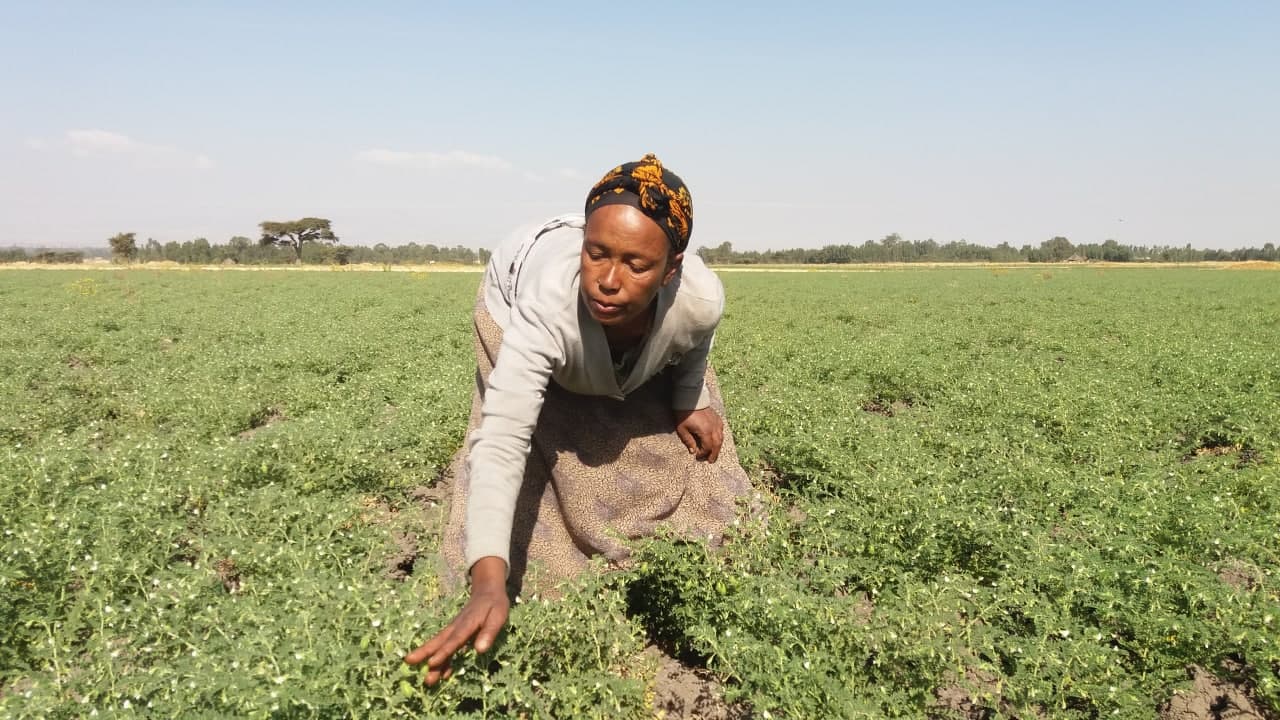To learn more about Digital Green’s AI-powered platform and how it impacts small-scale farmers in India, Ethiopia, Kenya, Nigeria and Nepal, we encourage you to sign up for our newsletter.
Using gender analysis to ensure the inclusion of women in agricultural extension services

The Digital Agricultural Advisory Services (DAAS) project aims to help farmers adopt relevant customized advisories delivered via digital channels while strengthening extension systems using a combination of technology solutions and capacity building, systems change, and partnership. In order to identify and respond to the barriers that women face in accessing technology and extension services, DAAS undertook a gender analysis to generate information on gender gaps, needs, constraints, and opportunities of women and men in the access, use, and adoption of digital advisory services. The study covered eight woredas in four regions of Ethiopia.
What did we learn from the gender analysis?
The majority of households are headed by men. Decision-making patterns show that women make fewer household decisions compared to men, who make major decisions. Women have more diverse income sources compared to men, but men have the upper hand in determining the household budget allocation. Apart from the women-only groups, women’s participation in membership and leadership positions in other development or social groups is minimal.
Women engage less in agriculture advisory services. Women do not adopt agricultural technologies and practices as quickly as men, citing the need to receive the approval of their husbands before proceeding. Furthermore, women are considered supporters in the productive activities and are represented by their husbands. Development Agents find many challenges in reaching women farmers, including the uneasiness of husbands when a male Development Agent provides extension support to their wives and women’s heavier workloads that mean they have less time to participate in extension activities.
What can we do differently to include women in extension activities?
There are numerous ways we can ensure women receive agriculture advisory services. Some examples include:
– Support women access and use digital technologies;
– Ensure that agriculture advisory services align with women’s time availability;
– Provide access to inputs to enhance agricultural production;
– Introduce technologies that ease women’s workload;
– Conduct training that considers women’s role in agriculture and society;
– Create an enabling environment for women to develop and own assets; and
– Provide assertiveness training for women in male headed households to boost their participation in household decision-making.
The gender analysis is guiding programming decisions. The DAAS project is operationalizing the recommendations from the gender analysis through the development of a gender strategy.
The Digital Agricultural Advisory Services (DAAS) project is led by Digital Green in partnership with Precision Agriculture for Development (PXD) and driven by the interests and priorities of the Ethiopian Government. The Impacting Gender and Nutrition through Innovative Technical Exchange in Agriculture (IGNITE) project, implemented by Tanager in partnership with Laterite and 60 Decibels, led the gender analysis, which was conducted with support from the AGILE consulting firm. DAAS is implemented with the generous support of the Bill & Melinda Gates Foundation and the United Kingdom’s Foreign Cooperation Development Office.